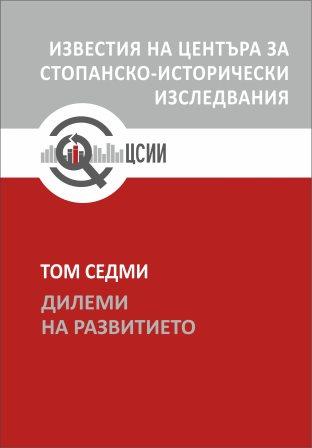Из историята на земеделското кредитиране в Габрово и региона (1878–1912)
On the History of Agriculture Lending in Region of Gabrovo (1878–1912)
Author(s): Rositsa ZlatinskaSubject(s): History, Economy, Micro-Economics, Agriculture, Economic history, Political history, Social history, 19th Century, Pre-WW I & WW I (1900 -1919), Financial Markets, Socio-Economic Research
Published by: Център за стопанско-исторически изследвания
Keywords: usury; agricultural case; agricultural credit; organized credit; unorganized credit; banking system; interest rate; loan
Summary/Abstract: The text presents and analyzes the foundation and the work of the agricultural case in Gabrovo. With the gradual economic development the need of organized agricultural credit system becomes greater. As a result of this need emerged first, albeit primitive, credit institutions – agricultural cases. Their main goal is to implement a financial support to farmers and increase the production and the income of agricultural sector. Farmers need low interest loans to develop their activities. In the 60s and 70s of the 19th century major source of capital for farmers were usurers. Most of them lend money in poor conditions. There are several cases in which the obligations of farmers grow a lot and they were forced to sell a lot of their property to pay back to the usurer. The cases lend money under better conditions than the usurer. The interest rate is fixed at 1% per month or 12% per year. On the other hand, the interest rate of the usury loans is between 3–5% per month and 36–60% per year. The difference is obvious, it leaps to the eye. Yet, there are a lot of cases when farmers use the services of the usurer instead of these of the agricultural cases. During the whole period both organized and unorganized credit forms develop and operate together. The positive results of the work of the agricultural cases are visible. But they also have a lot of problems. The biggest one is the lack of enough money and a lot of problems with their administrative structure, their personal and the procedure of lending money. After such a long time of existence and much reorganization the cases cannot cope with their problems and disadvantages. Evidence of the role and the importance of agricultural cases is the fact that they continue to work in the Ottoman Empire and in Bulgaria after the Liberation of 1878.
Journal: Известия на Центъра за стопанско-исторически изследвания
- Issue Year: VII/2022
- Issue No: 1
- Page Range: 382-392
- Page Count: 11
- Language: Bulgarian

